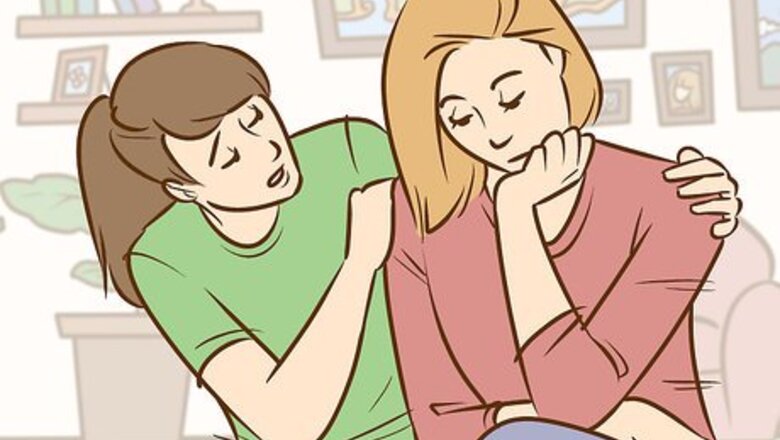
views
Taking the First Steps
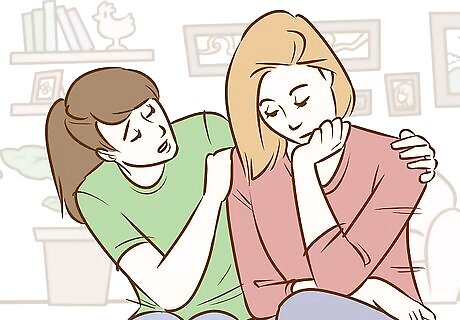
Know that you are not alone. According to the Alan Guttmacher Institute, 2003 (via Exhale), 1/3 of American women will have an abortion by the age of 45, and around the globe, the lifetime average is about one abortion per woman.
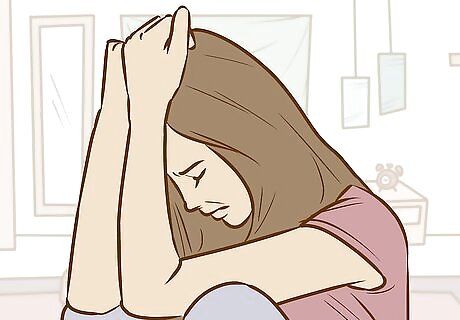
Recognize that abortion means different things to different people. Some people feel a range of strong emotions afterwards. Others don't feel much, or are simply relieved. Allow yourself time to process any emotions, and don't feel like something is "wrong" with you if there isn't much to process. This article includes advice for people who are struggling to cope. If you feel fine, then much of it won't apply to you. This doesn't mean that you're "abnormal," just that everyone experiences abortion differently. If you're really struggling, it may help to take a week off from work or school to focus on your own health.
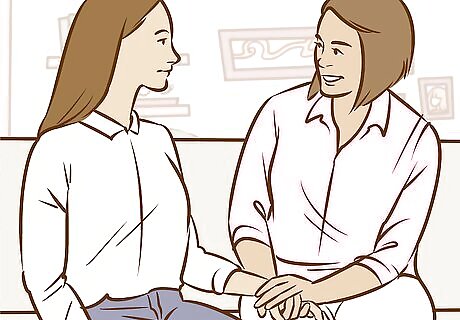
Know what's normal after an abortion. Abortions cause short-term side effects that fade in time. They are typically more intense if the abortion is in the 2nd or 3rd trimester. Side effects tend to get worse after the first 3-5 days, and then they improve. After an abortion, it's normal to experience: 3-6 weeks of bleeding or spotting (though some people don't bleed at all) Passing small or medium blood clots Painful cramps, typical than or slightly stronger than what you get during your period Tender, swollen breasts Fatigue
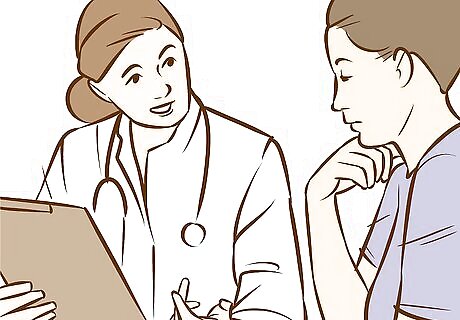
Know what's not normal after an abortion. Feeling tired, cramped, and uncomfortable is normal. Severe pain or illness is not. Call a doctor right away if you experience any of the following: Dizziness or fainting Nausea, vomiting or diarrhea for more than a day Soaking through 2 or more maxi pads in an hour for 2 hours in a row Passing more than 1 clot larger than a golf ball Signs of an allergic reaction (such as struggling to breathe) A fever for several hours Chills Serious cramps that don't improve despite heating pads and over-the-counter medication A strange smell coming from the vagina Feeling pregnant after 2 weeks Thoughts of self harm or suicide
Healing Your Body

Take time to rest. You may feel tired or exhausted for the first few days after the procedure. Spend time relaxing, and go to bed early in case you need extra sleep. Many people can return to regular activities the day after the abortion. However, if you don't feel up to it, take a day or two off.
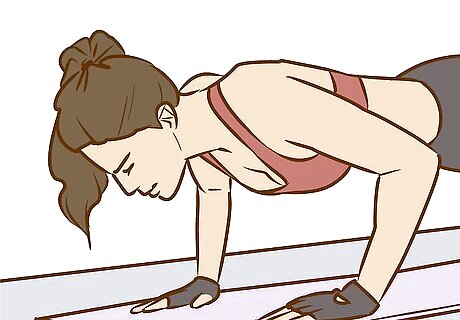
Avoid moderate to intense exercise for a week following abortion. Going for a walk, doing gentle yoga or pilates may help as soon as you feel you have the energy for it. Avoid doing inversions in yoga or anything that feels like a strain. You may feel tired or exhausted for the first few days after your abortion. Take it easy.
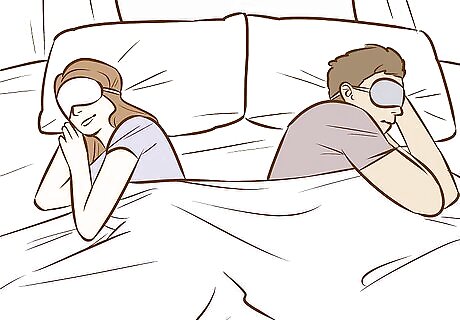
Avoid certain activities for a while to reduce the risk of infection. Your cervix will take time to close after an abortion, which means that you're at increased risk of infection, mostly for the first week or two. To reduce your risk of infection: Avoid penetrative sex or inserting things into the vagina for 1-2 weeks. Don't swim for 1-2 weeks. Use sanitary pads (not tampons) during your next period. Skip bath bombs, perfumes, oils, and other additions to bathwater. Don't douche for 1-2 weeks (or ever, ideally).

Deal with nausea. If you are experiencing nausea, your health care provider may prescribe anti-nausea medication. You may find that salty crackers, dry toast, ginger ale or ginger tea can soothe the nausea. Eat small, frequent, fresh meals, and avoid excessively fatty or sugary foods.
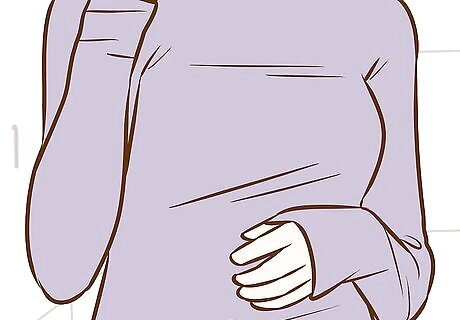
Take over-the-counter pain medicine for cramps. You'll probably feel cramps, similar to what you experience during a menstrual period, after the procedure. Treat them with acetaminophen (like Tylenol) or ibuprofen (like Advil or Motrin). You can also use heating pads, hot water bottles, or massage to help reduce stress. If the pain is unbearable, or it doesn't go away after a few days, call a doctor.

Replenish your iron levels. If you are losing lots of blood or are anemic, you’ll need to build up your blood. Take iron supplements with meals and especially with something vitamin-C rich, such as orange juice or tomatoes. Now is not a time for junk food or skimping on meals. You need your strength. See How to Follow Dietary Requirements for an Anemic. For more iron, eat: Meat Eggs Dried apricots and figs Leafy greens Beans (especially black beans) Lentils Beets Eggs

Pamper yourself a little. You've been through a difficult ordeal, and now it's time to rest and help yourself feel better. If you feel stressed, ask yourself "What would help me feel better right now?" Do your best to do relaxing activities for a while. Try using: Flowers Heating pad or hot water bottle Candles or natural light Aromatherapy Favorite music Funny animal videos Snuggle time with a pet or loved one Whatever helps you relax and feel good
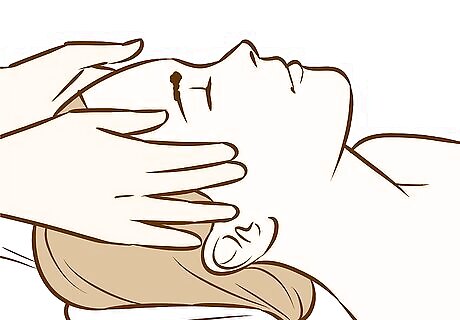
Try a massage. A massage can ease cramps and stress. Have a loved one or massage therapist massage your back, stomach, feet, or whole body. You can also try to do it yourself if you can reach the desired spot. For cramp relief, massage the cramped area or your lower back. If you're shy about asking for a massage, offer to take turns massaging each other.
Healing Your Emotions
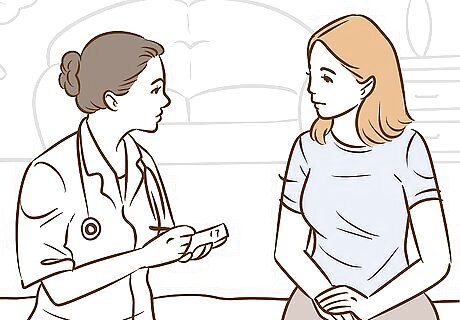
Recognize the possibility of a hormonal crash. After an abortion, some people experience a hormonal shift that causes symptoms similar to post-partum depression. Recognize that these terrible feelings are temporary and not your fault. If this happens to you, spend lots of time with your loved ones, snuggle, and talk to a doctor if you're worried. If symptoms don't improve after a day or two, if they're unbearable, or if you're having thoughts about hurting yourself, see a doctor.

Treat yourself to funny movies, books, and other forms of entertainment while you are resting if you like these sorts of things. Give yourself time just to laugh and feel at ease. It occur to find things amusing and behave "normally". After a potentially difficult decision and ordeal, it can be comforting to return to normal activities.

Give yourself time to work through any difficult emotions. You don't want to become so busy that you fail to fully process, and thereby heal from, the experience. Take time just to be with yourself, a significant other, friend, or supportive mentor.

Process any difficult emotions you may be experiencing. Some people may experience grief, loss, confusion, or self-blame. Don’t judge your feelings. Let them move through you. Recovering from an abortion is particularly difficult if you were a prospective parent whose baby couldn't survive. Burying the baby you never got to meet is a horrible experience. Expect recovery to take time, and remember that none of this is your fault.

Express your feelings through art. Try journaling, drawing, painting, collaging, songwriting, or any other form of creative expression that calls to you.
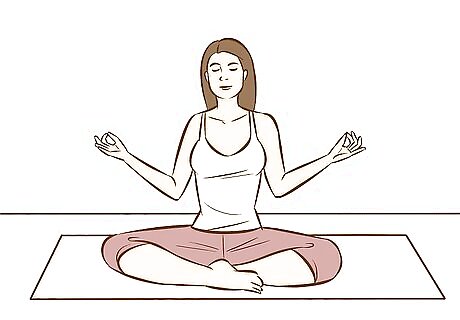
Meditate or pray. Work through your feelings. If you feel conflicted about aborting the fetus, try expressing your feelings about it. Write a letter, paint a picture, create music, or do something else to express your feelings about or to the fetus. Tell the fetus how you feel, like "I hope your spirit can find a better home" or "I wish I could have been your parent, but I wasn't ready to raise you the way you deserve."
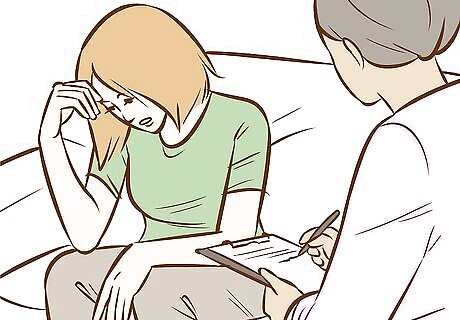
Seek guidance. If you feel so moved, seek the guidance of mentors, counselors, or spiritual advisers you feel comfortable with within your own spiritual or religious tradition, or who are nonsectarian. Be careful to choose individuals who can treat you with compassion, not judgment. And remember that ultimately, you are your own best guide.

Get the lessons. Be open to receiving the message of the experience as a whole. What might this experience of being temporarily, unexpectedly pregnant have come here to show you? What life lessons did it bring up for you, or in your relationship? What parts of yourself do you know better now? What do you feel inspired to do with your life now that you did not before?
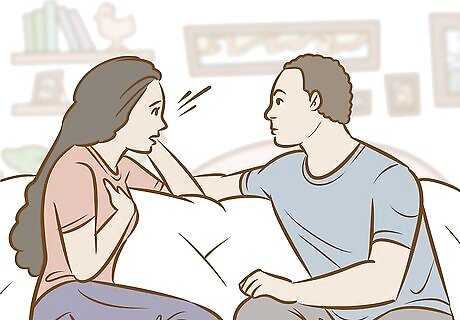
Communicate your feelings. You may wish to think about your reasons for not choosing parenthood at this time. What goals do you have that you wouldn’t be able to complete if you were to have to raise a child right now? Consider which of these goals are most meaningful to you. These are good questions to ask at any time. Welcome them, and be patient with the answers. Take time every day to meditate, pray, sing, journal, read self-help books, seek counsel, or do whatever it is that helps you discover your inner truth. What do you feel is your purpose in life? How can you contribute to society? Work on these goals.
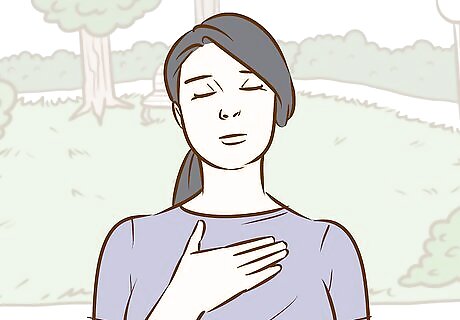
Forgive yourself for any mistakes you made. While some people have abortions due to circumstances that weren't their fault (such as sexual assault victimization), other people feel that they made bad decisions. If you made choices that you regret, work on processing your feelings and learning to forgive yourself. Good people make bad choices sometimes. If you made a few bad choices, that doesn't make you a bad person. Tell yourself "I did the best I could in a difficult situation. I can't undo the past, but I can learn from it." If you feel like you did a bad thing by getting an abortion, write a list of some good things you could do: volunteering, helping out your family members, editing wiki articles on a subject you're familiar with, et cetera. Commit to learning from what happened and using this information to make more thoughtful decisions in the future.
Reaching Out
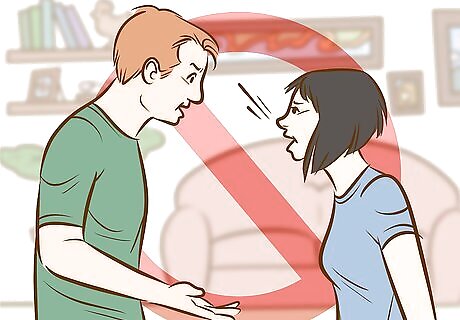
Stay away from people who would judge or blame you. While many people may react with empathy about your difficult situation, others may call you names or mistreat you because they don't agree with how you handled it. This isn't helpful to you. Your needs come first right now, so focus on taking care of yourself, even if that means not talking to someone who is close to you for a while. You don't have to tell someone if you think they would react badly. This is about what happened to you, and you are not obligated to tell anyone if you don't want to. If someone reacts badly, don't argue. Say "I'm sorry you feel that way" and end the conversation. You are not required to justify your decision to them, and getting into a heated argument isn't helpful to anyone. Take some space from somebody if needed.

Consider confiding in someone you can trust. Who do you know who is compassionate and would listen without judgment? Think about which of your friends, family members, mentors, and other allies you feel safest around. They should be good listeners, able to reflect compassion, and pro-choice. Perhaps you know others who have had abortions, or who have supported loved ones who have. If you don't feel you can trust anyone in your close circle with this matter, there are other resources out there, such as Exhale, an after-abortion counseling talk line. Talk to your partner, if you have one. If you need them to just listen and validate your feelings, ask. It may help to ask about their feelings about this. Your partner, too, may be feeling a range of emotions (from strong emotions to nothing in particular) and may or may not need to process them.
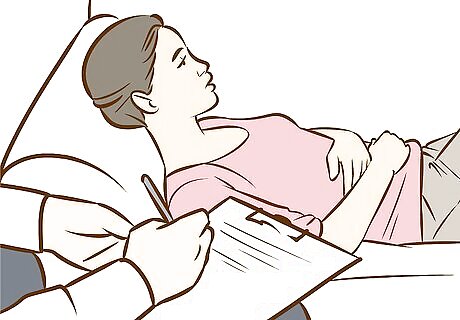
Talk. You can even try talking into a recorder (a tape recorder, computer program... there are even iPhone apps for this nowadays) if you just need to get something off your chest.
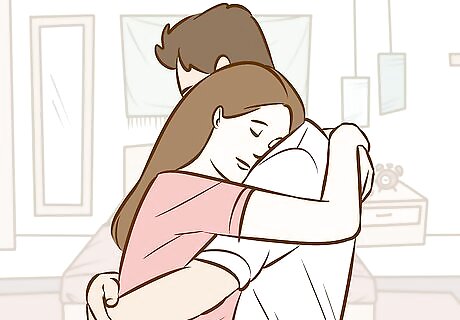
Reach out. Ask for what you need from your partner or support person. Tell people how they can support you. If they feel worried about you, they'll feel better if they can help you. Do you want a heating pad, a back rub, just someone to spend time with you? Ask. Both of you might feel better for it.
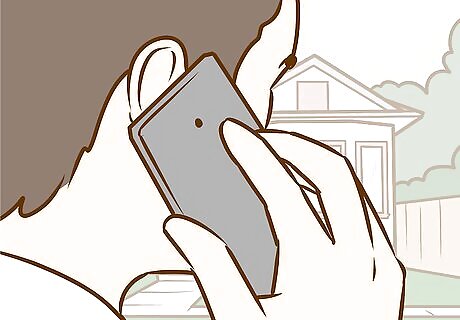
Call a hotline if you don't know who else to reach out to. If you don't feel comfortable talking to anyone in your life, if your loved ones are ill-equipped to help you, or if you're struggling late at night when your loved ones are asleep, try reaching out to a hotline. You can call... Exhale All Options

















Comments
0 comment